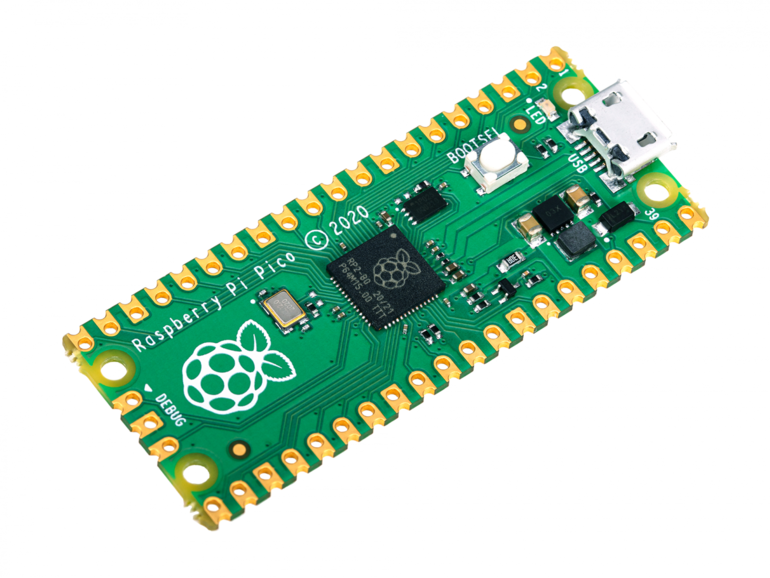Sales of Raspberry Pi’s latest product, the $4 Pi Pico microcontroller, are approaching one million, just two months after the product was released.
Raspberry Pi Trading, the company behind the Raspberry Pi single board computer, launched its first microcontroller in late January.
Raspberry Pi’s chief operating officer and hardware lead James Adams says the company, through its resellers, has almost sold one million units of the Pico since January 21. While the Picos are super cheap, it is a substantial number given that Raspberry Pi sold seven million of the more established Raspberry Pi single board computers in the whole of 2020.
The Pico is the first Raspberry Pi product with in-house designed silicon in the form of the the RP2040, which other microcontroller makers like Arduino are using for select products.
Raspberry Pi positions the Pico as a companion to the Raspberry Pi computer. The low-powered Pico handles analogue input and low-latency input-output, while heavier computational tasks are handled by computers like the Raspberry Pi 4.
The RP2040 features a dual-core Arm Cortex-M0+, a tiny 264 kilobytes of on-chip RAM, and support for up to 16MB of off-chip Flash memory.
Raspberry Pi also released a C software development kit (SDK) and a Pico Python SDK with MicroPython, an implementation of the Python 3 programming language for embedded systems.
Adams has detailed some of the challenges of designing the RP2040 for the Pico in order to keep the unit cheap but flexible.
For example, Pi engineers designed the RP2040’s pinout to work well on the Pico so it could use a cheaper two-layer printed circuit board (PCB).
“A lot of thought has gone into making it as low-cost and flexible as possible – from the power circuitry to packaging the units on to Tape and Reel, which is cost-effective and has good packing density, reducing shipping costs,” notes Adams.
“With Pico we’ve hit the ‘pocket money’ price point, yet in RP2040 we’ve managed to pack in enough CPU performance and RAM to run more heavyweight applications such as MicroPython, and AI workloads like TinyML,” he said.
TinyML is a project from Arduino that brings Google’s TensorFlow machine learning framework to microcontrollers so that complex algorithms can run on edge devices, such as wearables, where data is captured through sensors.
Adams said that the Pico is Raspberry Pi’s “most vertically integrated product” to date, aligning its strategy with Apple’s recent move to eschew Intel-based chips for its own silicon in the 2020 MacBook Air, 13-inch MacBook Pro and Mac Mini.
Adams gave a nod to Apple’s move: “Pico is also our most vertically integrated product; meaning we control everything from the chip through to finished boards. This ‘full stack’ design approach has allowed optimisation across the different parts, creating a more cost-effective and coherent whole. It’s no wonder we’re not the only fruit company doing this,” says Adams.
The low-powered RP2040 will not be used in any Raspberry Pi computers, but it remains to be seen whether the company decides to design its own silicon for its single board computers.
